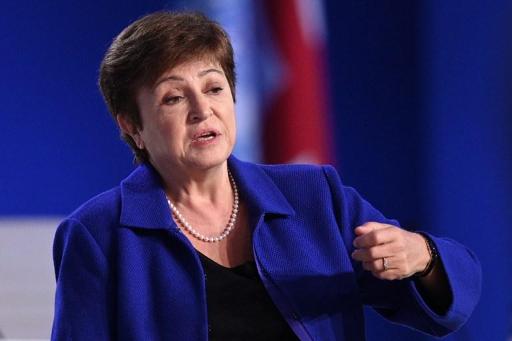The war in Ukraine will have far-reaching consequences for the world economy in the longer term, as economic growth will be undermined and inflation will rise more sharply, according to the International Monetary Fund (IMF).
Russia and Ukraine are major commodities producers, and disruptions have caused global prices for oil and natural gas to soar. Food costs have also jumped, with wheat, for which Ukraine and Russia make up 30% of global exports, reaching a record.
"The entire global economy will feel the economic ‘ripple effects’ of the war in Ukraine, with slower growth and faster inflation – the reverse of what we want to see," said IMF managing director Kristalina Georgieva on Twitter.
"The conflict is a major blow to the global economy that will hurt growth and raise prices," the IMF said in a blog, while also pointing to the human suffering and refugee influx caused by Russia's invasion.
The Fund believes that countries that are highly dependent on food supplies from Russia and Ukraine will suffer greatly from the higher prices. These include Egypt, which gets 80% of its grain from Russia and Ukraine, but also other countries in Africa and the Middle East. This could lead to greater social unrest.
Related News
- 'Becoming the Wild West': Belgium takes extra measures to combat soaring energy prices
- Russia admits that Ukraine invasion is not going exactly to plan
- Belgium freezes €10 billion Russian assets
Additionally, countries in Central Asia and the Caucasus may also be affected by the harsh Western sanctions imposed on Russia, for example by the sharp contraction of the Russian economy and the disruption of payments and tourism.
Previously, Georgieva had earlier said that expectations for the growth of the world economy this year would have to be revised downwards because of the war.
The IMF will issue new forecasts in April.

